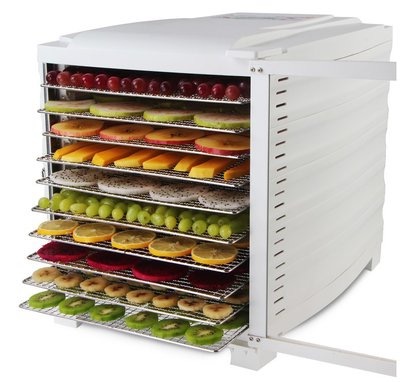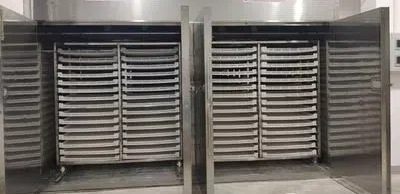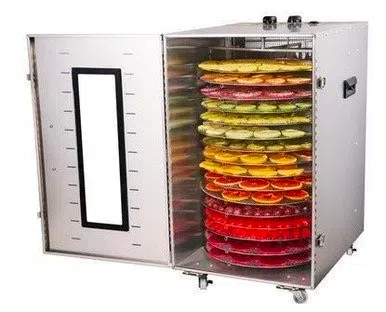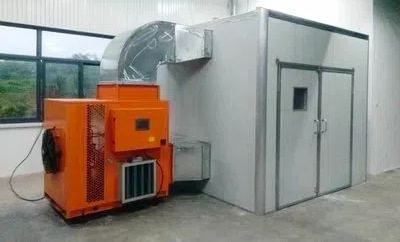
Content Menu
● Understanding Heat Pump Dryers
● Energy Efficiency
● Gentle Drying Process
● Versatility
● Improved Quality
● Reduced Environmental Impact
● Cost-Effectiveness
● Automation and Control
● Space Efficiency
● Safety Features
● Conclusion
● Frequently Asked Questions
>> 1. What types of food can be dried using a heat pump dryer?
>> 2. How does a heat pump dryer differ from a conventional dryer?
>> 3. Are heat pump dryers suitable for small-scale food manufacturers?
>> 4. What are the maintenance requirements for a heat pump dryer?
>> 5. Can heat pump dryers help reduce energy costs?
In the world of food processing, drying is a crucial step that significantly affects the quality, shelf life, and flavor of food products. As a leading manufacturer of food dryers in China, we understand the importance of efficient drying methods. One of the most innovative technologies in this field is the heat pump dryer. This article will explore the benefits of using a heat pump dryer over a conventional dryer, particularly in the context of food drying.

Understanding Heat Pump Dryers
Heat pump dryers utilize a refrigeration cycle to remove moisture from food products. Unlike conventional dryers that rely on direct heat sources, heat pump dryers recycle the heat generated during the drying process. This not only makes them more energy-efficient but also allows for more precise temperature control, which is essential for preserving the quality of food.
Energy Efficiency
One of the most significant advantages of heat pump dryers is their energy efficiency. Conventional dryers often consume a large amount of energy, leading to high operational costs. In contrast, heat pump dryers can reduce energy consumption by up to 50%. This is particularly beneficial for food manufacturers looking to minimize costs while maintaining high-quality products.
Gentle Drying Process
Heat pump dryers operate at lower temperatures compared to conventional dryers. This gentle drying process is crucial for preserving the nutritional value, color, and flavor of food products. For instance, fruits and vegetables dried at lower temperatures retain more vitamins and minerals, making them healthier options for consumers.
The ability to control the drying temperature also helps in preventing the degradation of sensitive compounds in food, such as antioxidants and essential oils. This is particularly important for products like herbs and spices, where flavor and aroma are paramount.
Versatility
Heat pump dryers are incredibly versatile and can be used for a wide range of food products, including fruits, vegetables, meats, and herbs. This adaptability makes them an excellent choice for food manufacturers who need to process various items. Additionally, heat pump dryers can be adjusted to accommodate different drying requirements, ensuring optimal results for each product.
For example, when drying fruits, the dryer can be set to maintain a specific humidity level, which helps in achieving the desired texture and taste. Similarly, when drying meats, the temperature can be adjusted to ensure thorough drying while maintaining safety standards.
Improved Quality
The quality of dried food products is paramount in the food industry. Heat pump dryers provide a more controlled drying environment, which helps prevent issues such as over-drying or uneven drying. This results in higher-quality products with better texture, flavor, and appearance. For example, dried fruits retain their vibrant colors and natural sweetness when processed in a heat pump dryer.
Moreover, the controlled environment of heat pump dryers minimizes the risk of microbial growth during the drying process. This is particularly important for products that are sensitive to spoilage, ensuring that the final product is safe for consumption and has a longer shelf life.
Reduced Environmental Impact
As sustainability becomes increasingly important in the food industry, heat pump dryers offer a more environmentally friendly option. Their energy efficiency translates to lower carbon emissions, making them a greener choice for food manufacturers. Additionally, the ability to recycle heat reduces the overall energy demand, further contributing to environmental conservation.
Using heat pump dryers can also lead to less food waste. By preserving the quality of food products, manufacturers can reduce the amount of product that goes unsold or is discarded due to spoilage. This not only benefits the environment but also enhances profitability.

Cost-Effectiveness
While the initial investment in a heat pump dryer may be higher than that of a conventional dryer, the long-term savings on energy costs and improved product quality make them a cost-effective solution. Food manufacturers can benefit from reduced operational costs and increased product value, leading to higher profit margins.
Additionally, the durability and reliability of heat pump dryers mean that they often require less maintenance and have a longer lifespan compared to conventional dryers. This further enhances their cost-effectiveness over time.
Automation and Control
Modern heat pump dryers come equipped with advanced automation and control systems. These features allow operators to monitor and adjust drying parameters in real-time, ensuring optimal conditions for each batch of food. This level of control minimizes the risk of human error and enhances the overall efficiency of the drying process.
For instance, many heat pump dryers now feature smart technology that can be integrated with production management systems. This allows for better tracking of drying cycles and product quality, leading to improved operational efficiency.
Space Efficiency
Heat pump dryers are often more compact than conventional dryers, making them suitable for facilities with limited space. Their design allows for easy integration into existing production lines without requiring significant modifications to the layout. This space efficiency is particularly advantageous for small to medium-sized food manufacturers.
Moreover, the compact design of heat pump dryers often includes stackable options, allowing manufacturers to maximize their production capacity without expanding their physical footprint.
Safety Features
Safety is a critical concern in food processing. Heat pump dryers are designed with various safety features, including temperature controls, moisture sensors, and automatic shut-off systems. These features help prevent overheating and ensure that the drying process is safe for both operators and the food products being processed.
Additionally, many heat pump dryers are equipped with alarms that notify operators of any irregularities in the drying process, allowing for immediate corrective action. This enhances the overall safety of the operation and protects the quality of the food being processed.
Conclusion
In conclusion, heat pump dryers offer numerous benefits over conventional dryers, particularly in the food processing industry. Their energy efficiency, gentle drying process, versatility, improved product quality, reduced environmental impact, cost-effectiveness, automation, space efficiency, and safety features make them an ideal choice for food manufacturers. As the demand for high-quality dried food products continues to grow, investing in heat pump dryer technology can provide a competitive edge in the market.

Frequently Asked Questions
1. What types of food can be dried using a heat pump dryer?
Heat pump dryers can be used for a variety of food products, including fruits, vegetables, meats, and herbs.
2. How does a heat pump dryer differ from a conventional dryer?
Heat pump dryers recycle heat and operate at lower temperatures, making them more energy-efficient and better for preserving food quality compared to conventional dryers.
3. Are heat pump dryers suitable for small-scale food manufacturers?
Yes, heat pump dryers are compact and can be easily integrated into small-scale production lines, making them suitable for small to medium-sized manufacturers.
4. What are the maintenance requirements for a heat pump dryer?
Regular maintenance includes cleaning filters, checking for leaks, and ensuring that the heat exchange system is functioning properly to maintain efficiency.
5. Can heat pump dryers help reduce energy costs?
Yes, heat pump dryers are designed to be energy-efficient, often reducing energy consumption by up to 50%, which can lead to significant cost savings over time.












